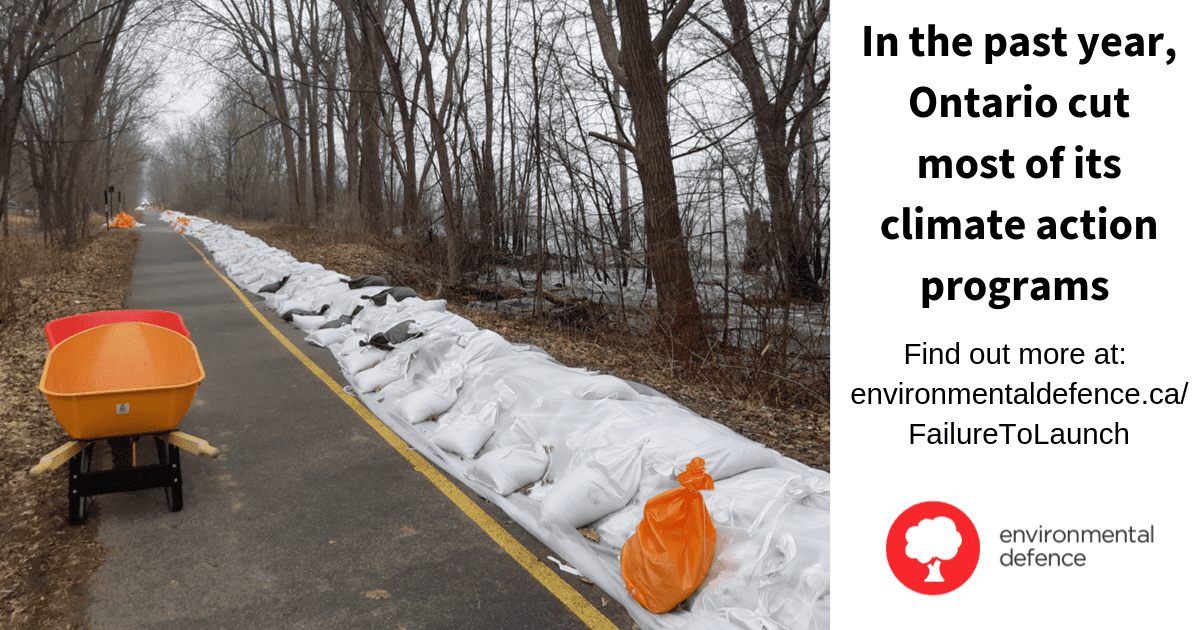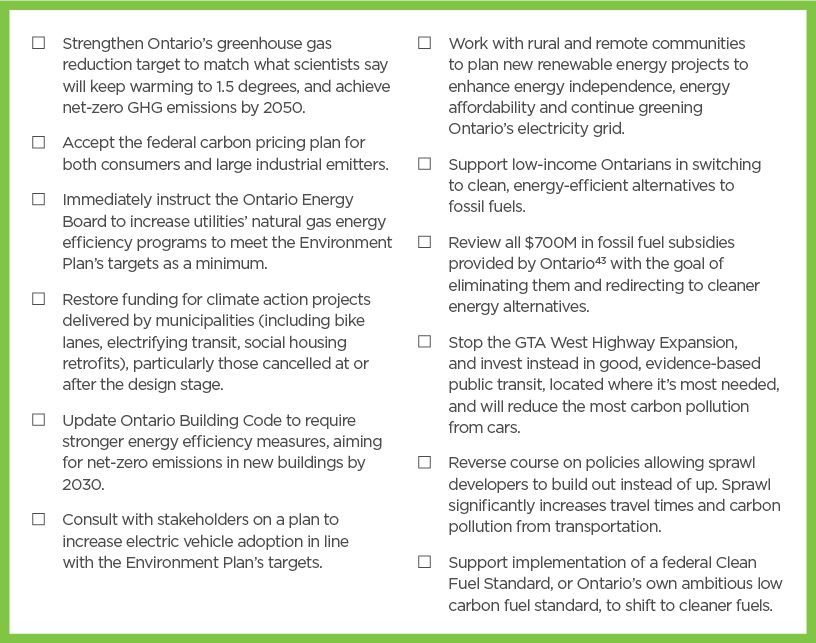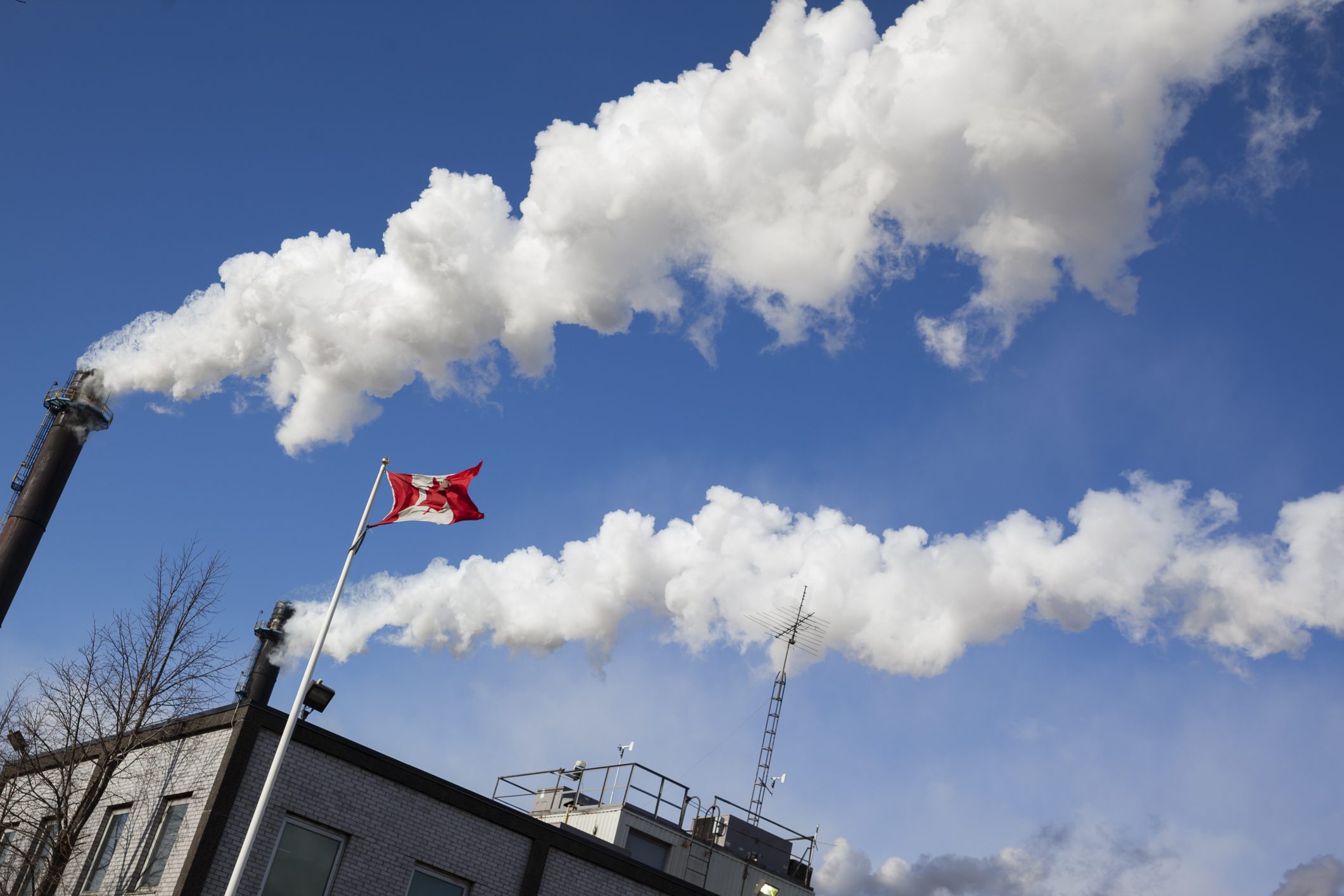Ontario has walked away from their climate change promises so far. Can they get back on track?
On September 27th, an estimated million Canadians joined a Global Climate Strike to demand stronger climate change action from government leaders at all levels. Ontario’s Environment Minister Jeff Yurek released a statement that day, claiming that “Ontario is leading the way when it comes to fighting climate change in Canada.”
This statement needs a serious fact check . Can it be true that Ontario is still leading the way after the government cancelled the province’s world class climate action programs? To see if the Minister’s statement has even a grain of truth, let’s take a deeper look at what’s actually been done – and not done – by this provincial government to fight climate change.
 It’s no secret that Premier Ford’s government abruptly scrapped Ontario’s cap-and-trade carbon pricing system and the hundreds of climate action programs it funded. That was on top of weakening Ontario’s targets for reducing greenhouse gas emissions. These cuts were justified with a promise to reduce Ontario’s carbon footprint without a price on carbon pollution. But has this happened?
It’s no secret that Premier Ford’s government abruptly scrapped Ontario’s cap-and-trade carbon pricing system and the hundreds of climate action programs it funded. That was on top of weakening Ontario’s targets for reducing greenhouse gas emissions. These cuts were justified with a promise to reduce Ontario’s carbon footprint without a price on carbon pollution. But has this happened?
The short answer is, not yet. We’ve analyzed Ontario’s progress so far in our new report “Failure to Launch: A Progress report on Ontario’s climate change actions.” We’ve pored over the climate change actions proposed in the Made-In-Ontario Environment Plan, which Ontario released in the fall of 2018. We’ve gone to consultations, read policy documents, and closely tracked this government’s action since the plan’s release to see whether the scale of climate action proposed is enough to match their commitments. More than a year after making this promise, there’s no evidence that their actions will reduce greenhouse gas emissions in any meaningful way.
What’s been done – and not done?
It’s not fair to say that Ontario has done nothing. For example, they’ve proposed a system to reduce industrial carbon pollution, proposed increasing renewable fuel content in gasoline, proposed ways to cut methane emissions from organic waste, and committed funds to public transit expansion in Ontario. But these proposals are not being designed to meet the emissions reduction targets set out in Ontario’s Environment Plan. In fact, some are actually weaker than the carbon reduction policies currently in place. Such is the case with Ontario’s plan to reduce carbon pollution from industrial emitters. Swapping in a weaker provincial system to replace the federal system already in place would in fact increase the provinces’s emissions.
 We also considered what’s missing. Ontario’s plan promises a fifteen percent reduction in greenhouse gas emissions from “low carbon vehicles uptake.” But the province cancelled every program to support this goal, and followed up with no replacement programs. Electric vehicle sales have since plummeted in Ontario by 55 per cent. Another 15 per cent reduction in greenhouse gas emissions is supposed to come from “innovation.” But there is little indication of what this even means, let alone what actions Ontario is considering to actually support this targeted reduction.
We also considered what’s missing. Ontario’s plan promises a fifteen percent reduction in greenhouse gas emissions from “low carbon vehicles uptake.” But the province cancelled every program to support this goal, and followed up with no replacement programs. Electric vehicle sales have since plummeted in Ontario by 55 per cent. Another 15 per cent reduction in greenhouse gas emissions is supposed to come from “innovation.” But there is little indication of what this even means, let alone what actions Ontario is considering to actually support this targeted reduction.
What should happen next?
Meanwhile, the clock is ticking, and the climate crisis keeps getting worse. People are taking to the streets to demand that governments start taking this problem seriously. As the call for action gets louder, will Ontario wake up, and commit to stronger climate change action?
Ontario can still accelerate efforts to reduce carbon pollution. Here are some steps Ontario can take right now to do this.
Actions to help reduce greenhouse gas emissions in Ontario

Is Ontario actually “leading the way” on climate change?
Ontario has time to step up and take meaningful action to address climate change. But this needs to happen now. Until then, Minister Yurek’s statement that Ontario is “leading the way when it comes to fighting climate change in Canada” is objectively false.
Read the full report here.








